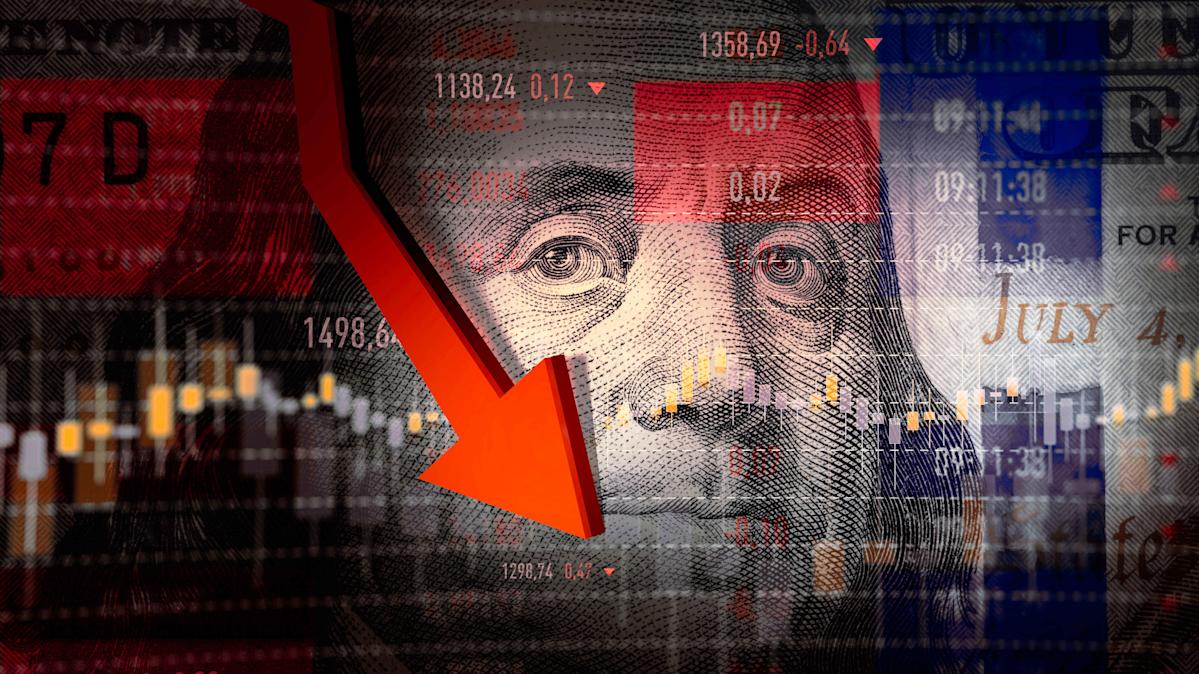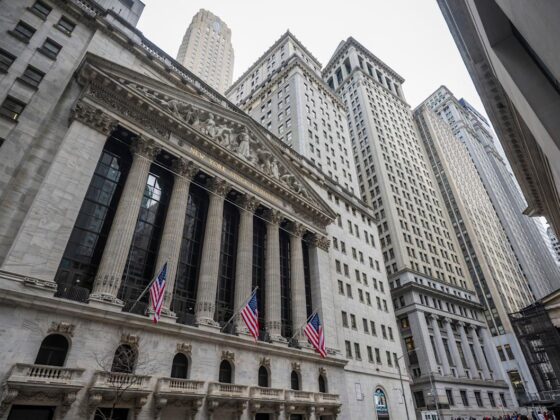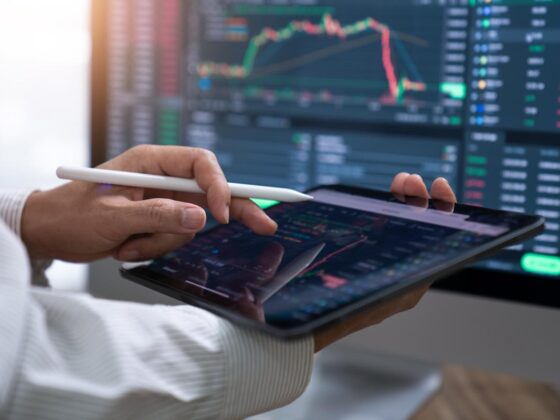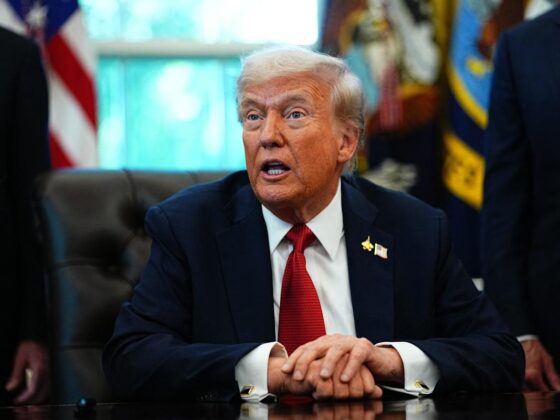00:00 Speaker A
Stocks are rising as investors await developments on tariff rates, potential trade deals. Joining us now, Daniel Morris, BNP Paribas Asset Management chief market strategist. Um, and Kevin Gordon is still with us as well. As we continue this waiting power, uh, this waiting pattern. Excuse me, Daniel. Um, there of course has been this whole narrative of international stocks, um, and rotation into them that we have seen thus far this year. Is that still the the playbook here? Should an investors, if they've missed that move, is it too late to get into international stocks?
00:51 Daniel Morris
Well, I think it depends on which your starting point. So if you're a US investor considering investing abroad versus a European investor based in London looking at your allocations, I think it probably is a bit different. Uh, from a non-US investor point of view, particularly after the election there was that consensus trade. Everyone was optimistic about the outlook for US equities and a lot of foreign investors were very much overweight US equities. And when things didn't quite go to plan, when we had the Liberation Day announcement, from their point of view, it did make sense to perhaps take some of the allocations that they had in the US and put it elsewhere. Now, the dilemma for a US based investor, uh, is what they think is going to happen with the dollar. Now, if they invest abroad and the dollar does continue to appreciate that adds to the total return. So from that point of view, if that's your expectation, actually increasing your non-US allocations might make sense.
02:21 Speaker A
And Dan, I'm also really curious, um, as an American based in London who deals with a lot of international investors, I'm always curious to get some perspective on what your international clients, what their perspective is on everything that's going on in, in terms of these trade negotiations.
02:52 Daniel Morris
Uh, well I think I imagine it's not terribly different as what you experience in the US. There's a wide range of views, uh, on how this is all going to play out. Uh, so I think it really depends on how any particular investor anticipates this is going to evolve. And I think we all appreciate, we don't have a whole lot of clarity on that. Uh, nonetheless, I think what we've seen if you look at fund flows, uh, even though say immediately after the Liberation Day announcements in April, you did see for example, European investors pulling out of US ETFs. So, ETFs that were investing in US assets. Uh, that's turned around. So at least from a fund flow point of view, you actually do still see again European investors going back into US assets.
04:04 Speaker A
Um, Kevin, I want to bring you into this as well because I'm curious to get your take on that sort of international versus US situation.
04:14 Kevin Gordon
Yeah, I I'd be curious to know Daniel, just the if if we're looking at Europe in particular, you know, so much focus has been, uh, rightly so I would say from a fiscal stimulus perspective, Germany. And that's you know, a lot of that's been reflected in terms of the performance of the DAX this year versus even other parts of Europe. Um, if you look at France in particular, you know, that differential's pretty wide. But even if you look outside of kind of core Europe and you look on the periphery and where there's a little bit more of a services bias. How are you thinking about markets responding to that potential of a strengthening of you know, domestic demand, domestic for for Europe broadly versus the US where, you know, supply shocks here may hit a little bit harder versus in, in Europe?
05:16 Daniel Morris
And there's two key drivers that you see in European equities. So you're right to point out that there's been pretty significant change in sentiment towards European equities, but I think we need to go a bit deeper and think about what those drivers are and then how you actually tap into it. Uh, so on one hand you mentioned the stimulus coming from Germany for infrastructure spending is significant increase in defense spending across the EU. Uh, and you do see that benefit particularly within stocks in the industrial sector more broadly. So that does seem to be a sustainable theme. Also, so far this year, big driver for the performance of European equities have been financials, banks, reflecting the cuts that the ECB has been putting through at the same time that the Fed has not. So that arguably is a shorter term dynamic if the Fed itself actually starts to cut rates. If you look outside of those two sectors though, the picture is a bit more mixed. Uh, I think there's still concerns about the medium-term outlook for European growth. Questions about regulation, labor market supply. You know, go back to this expectation to increase infrastructure spending in Germany. Fantastic. Germany's really struggling with finding workers to do the job to build more bridges, uh, to lay down new rail. So I think it's a mixed picture. It's really a question of trying to find how you take advantage of that stimulus and pick the opportunities, uh, maybe more narrowly than just a broad European equity allocation.
07:29 Speaker A
Well, and Dan, something else that you've written about recently that I think is really interesting is we focus a lot on large cap tech here in the US. Its outperformance. It's uh, exposure in the major averages. But as you point out in emerging markets, it's even higher weighted in some cases. And you're looking at that phenomenon. What do you s- what sort of your conclusion? Is that a good place for investors to be looking for tech exposure also?
08:08 Daniel Morris
There's just a way to think about what's driving the performance with any particular region. So as you were talking about earlier in Nasdaq, as we know mag seven and so on has been a key driver for the performance of US equities, you know, this year, last year. Uh, that's a theme we're quite aware of. Uh, but you see a similar phenomenon when you look at emerging market equities. That what's driven a big part of performance, uh, certainly recently, but over a longer period of time as well. Uh, it has been similar types of stocks, uh, stocks within uh, tech sector within communication services, interactive media and so on. Similar to what you have with the Nasdaq though. Even if though we're not quite so used to looking at it that way because you don't have a Nasdaq index if you will for emerging markets. Uh, the underline dynamic is actually quite similar.
09:10 Speaker A
And so would emerging markets be a place that you would be recommending for investors right now?
09:18 Daniel Morris
Uh, we're neutral on emerging markets. Are overweight within equities is currently than Nasdaq, but it is certainly something we're thinking about and keeping our eye on.













